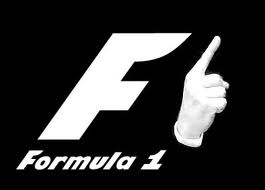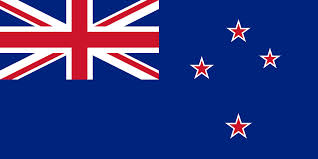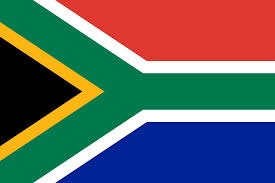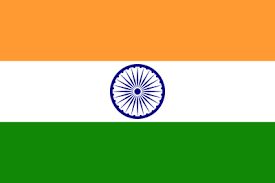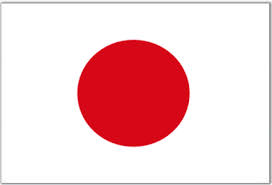RICOH Women’s British Open
The Old Course, St. Andrews
Fife, Scotland
Pre-tournament Notes and Interviews
July 31, 2013
Suzann Pettersen, Rolex Rankings No. 3
Jiyai Shin, Rolex Rankings No. 8 and defending champion
Catriona Matthew, Rolex Rankings No. 10
Paula Creamer, Rolex Rankings No. 11
Beatriz Recari, Rolex Rankings No. 18
The iconic Swilcan Bridge is waiting to greet its next champion this week, as the LPGA returns for a second time to The Old Course at St. Andrews for the RICOH Women’s British Open. Six years after Lorena Ochoa became the first woman to win a major championship contested on the famous Old Course, there is once again significant history on the line this week at the Home of Golf with Rolex Rankings No. 1 Inbee Park trying to become the first golfer – male or female – to win four professional major titles in a single season.
But Park certainly will have some competition this week at St. Andrews as 19 of the top 20 golfers in the Rolex Rankings are the in the field of 144 players this week. That includes Rolex Rankings No. 2 Stacy Lewis, No. 3 Suzann Pettersen and No. 8 Jiyai Shin, who is also the defending champion.
Last year Shin battled the elements at the difficult Royal Liverpool Golf Club and captured her second career major championship in dominating fashion. She shot rounds of 71-73 in a 36-hole finale on Sunday to take a record-breaking, nine-shot victory. Shin, who won the 2008 RICOH Women’s British Open at Sunningdale, finished at 9-under-par and was the only player in the field who managed to finish under par.
Defending under the radar? Usually it’s the defending champion who comes into the week of a tournament with the majority of the attention and focus on her. But with the run Inbee Park has been on in the majors so far this season, 2012 winner Jiyai Shin comes into this week’s RICOH Women’s British Open with relative anonymity.
Not that it bothers Shin at all. In fact, she’s more focused on what she’s been able to learn from Park than trying to gain more attention than the current world No. 1.
“She plays so good and then her putting looks like very smooth in any conditions,” Shin said. “Especially when I see her, she looks like very comfortable all the time and then it looks like she doesn't get any pressure out there during the play. Well, I really ‑‑ inspired from her.”
Shin has not played on the LPGA Tour since missing the cut at the U.S. Women’s Open. She began the year with a victory at the season-opening ISPS Handa Women’s Australian Open – her 11th career LPGA victory – and has added three top seven finishes including a tie for seventh at the Kraft Nabisco Championship. In June, she crossed the $6 million mark in career earnings and currently sits 30th on the LPGA Career Money List.
Taking it all in: For anyone walking around the grounds at St. Andrews, it would be hard to miss all of the history that has surrounded the Home of Golf for hundreds of years. There is a mystique and an aura of being around this town that everyone seems to pick up on as soon as they step foot here.
And after watching players take numerous photographs around the golf course that they have put on Twitter and Instagram, it’s clear to see that they appreciate the experience of being at St. Andrews.
“I take like hundreds of pictures at the golf course [this week],” said 2012 RICOH Women’s British Open winner Jiyai Shin.
So what is it that people find so special about coming to St. Andrews?
“I think it's just the vibe of the place,” said Scotland native Catriona Matthew. “I don't think it matters when you come to play it, whether it's January or July, there's always people around 18, and I think 1 and 18 are just always how you pictured them on television and it's great fun to play here.”
Creamer’s memories of 2007: Paula Creamer sat on her hotel balcony and watched Lorena Ochoa make the Sunday walk over the Swilcan Bridge in 2007 on the way to a victory at the RICOH Women’s British Open. Creamer tied for seventh that week, but it would be three years before she stepped into the major championship winner’s circle at the U.S. Women’s Open.
“I remember watching her walk over the bridge on 18 and thinking to myself – I played well that Sunday, but still – I was thinking, man, I wish I could be in her shoes right now and feel that feeling,” Creamer said.
Creamer has four top-10 finishes at the RICOH Women’s British Open including a career-best third place finish last year. She is winless on Tour since the 2010 U.S. Women’s Open, but returns to the Old Course at St. Andrews this week following a second-place finish two weeks ago at the Marathon Classic in Toledo.
The “Pink Panther” enters this week with an appreciation for what Inbee Park has done this year – and the attention she has taken away.
“It's kind of nice, everybody does talk about it, you can go about your business,” Creamer said. “Everyone is kind of watching what Inbee is doing in a sense.”
Home favorite: Catriona Matthew has come closer than anyone this year to besting Inbee Park in a major championship. Back in June, Matthew forced a playoff with Park at the Wegmans LPGA Championship, the second major of the season. Although she lost on the third playoff hole to Park, Matthew has been pleased with how she’s performed in the majors this season.
Matthew has finished in the top 15 in each of the first three majors this season. In addition to her runner-up finish at the Wegmans LPGA Championship, Matthew finished T7 at the Kraft Nabisco Championship and T15 at the U.S. Women’s Open.
The native of North Berwick, Scotland became the first Scottish woman to win a major championship four years ago when she won the 2009 RICOH Women’s British Open at Royal Lytham and St. Annes. Matthew has performed well in her home event the past couple years, recording top-10 finishes at the RICOH Women’s Open in each of the last two seasons.
Matthew’s first major championship came just 11 weeks after she gave birth to her second daughter, Sophie. Now she’s on another big stage at the Home of Golf so could this be the week that Matthew breaks through for a second major title?
“Obviously to win, for me personally to win at Scotland and at St. Andrews and to beat Inbee, yeah, would be a big deal,” Matthew said. “When I won the British the last time, I just had Sophie, my second child, so that was quite a big deal, so maybe I need the big occasion to win.”
Matthew was then asked in jest by a reporter if she might end up having another child just to get another major.
“I think I’ll stop at two,” she said laughing.
Taking a cue from others? Suzann Pettersen loves coming back to Europe to play golf, but trying to put a finger on why she hasn’t fared well at the RICOH Women’s British Open is a bit of a difficult task for the native of Oslo, Norway.
“It’s probably the one and only major I’ve never really been in contention,” Pettersen said. “I’m a little bit surprised by it because I feel like with my shot-making and being creative with shots, it should probably suit my game quite a lot to play links golf.”
Pettersen’s best finish at the RICOH Women’s British Open was a tie for 14th in 2010 at Royal Birkdale. It’s her only top 20 finish in 11 appearances at the event and she’s missed the cut here a total of five times. But while she has yet to have success here, Pettersen said that she takes motivation from others who have finally broke through at big events like Phil Mickelson at the Open Championship earlier this month.
“You can look at any sport for inspiration, look at Andy Murray, a fantastic kind of fighter, never gives up, makes the changes that's needed to the game,” Pettersen said. “And obviously the actual sport is different once you kind of ‑‑ once the gun goes off. But the preparations and the mentality behind it, I think it's very, very similar.
“I actually didn't watch too much of the men's open because I was not in front of a TV, but I think it was pretty cool for Phil Mickelson to win the Scottish and then to kind of take that confidence into the British Open and be patient enough to just go out and play probably his best round ever on Sunday under extremely tough conditions.”

Tweet of the Day: Help Me! #hellsbunker @RICOHWomensBrit #standrews -- @TheIreneCho
Quotable: “I believe that if Inbee does win this, it's a Grand Slam in my eyes. Whenever you win four Majors in a row, I think it doesn't really matter what you call it. It's impressive as it is.” – Paula Creamer on Inbee Park
Of Note…On Wednesday it was announced that the RICOH Women’s British Open will be hosted in 2015 at Turnberry’s famous Ailsa course for only the second time in the Championship’s history. Turnberry has hosted the Open Championship a total of four times, most recently in 2009…The last time that the RICOH Women’s British Open was conducted at Turnberry was in 2002 and Karrie Webb became the first player to win the Championship three times that year...
SUZANN PETTERSEN, Rolex Rankings No. 3
COLIN CALLANDER: Good afternoon, we have Suzann Pettersen. Thank you very much indeed for coming in to join us.
This is the second time you have played this championship here at St. Andrews. Do you have any particular memories of the first time?
SUZANN PETTERSEN: Sure, I mean, it was very special to come here the first time around in 2007. I came here earlier, I remember, to play the course a few times just to kind of let the course grow on you. I must say, the more I played it, the more I grew to love it, how special it felt.
Trying to learn from the experience in 2007 this year, but I must say, I've played quite a lot of golf since and I don't remember every bounce and shot that I hit back then. But the course is in great shape and the few changes they have done, to be quite honest, I don't really remember what it was before, but as it sits right now, it looks very, very good.
COLIN CALLANDER: You said you've played a lot of golf since 2007 and you've obviously seen a lot of changes in tour life. Seems that there are more very, very good players out here now than in those days, would that be the case, do you think?
SUZANN PETTERSEN: Well, I guess the LPGA has changed a lot since I first came out in 2002, 2003. I guess the top has changed, but I also think the depth is deeper. I think that we are playing against so many young girls now. They are so good at such an early age, it's just fun to see. It's always fun to come to Europe and play the majors here; being European, they feel a little bit more special. I'm really excited to get started.
Q. You had an excellent career so far but you never really made it in the British Open. Why is that?
SUZANN PETTERSEN: Well, that's a good question. You know, it's probably the one and only major I've never really been in contention.
I'm a little bit surprised by it because I feel like my shot‑making and being creative with shots, it should probably suit my game quite a lot to play links golf. We used to play a lot of links growing up. I used to play the British Girls', the British Ladies'. Used to play tons of European Team Championships on English courses.
But obviously, I think in the past, I've had a struggle to adjust from playing in Evian on kind of uneven lies and trying not to spin the ball off the greens to kind of adjust to links golf. I think the two extremes, back‑to‑back weeks; I think I have a better chance to prepare this time.
Obviously it wouldn't ‑‑ this is probably going to be my one and only shot at a British Open at St. Andrews. I don't know if I'm going to be around next time St. Andrews comes on the British Open rotation, so I think a lot of us I think feel a little bit lucky to have a second go at this course.
Q. I'm writing a story about Lorena Ochoa winning here in 2007, and going back to 2007, do you think ‑‑ she was there as a top player, and coming here, do you think it was meant to be for her to win?
SUZANN PETTERSEN: I mean, she was very good at the time. I mean, she was dominating. She had tons of confidence. I remember she prepared this tournament really well. She played a lot of practise rounds and she kind of stuck to her strategy. She warmed up quite a lot, too, didn't she. She just played outstanding.
I think it was one of her biggest kind of achievements to kind of win The British Open at St. Andrew. To look back at your career and say, I won the British Open at the Home of Golf, that would mean a lot to anyone playing at this level.
I think for her, it just tops her career. When did she retire, 2009? 2010. She's had quite a few years after that where she was performing fantastic.
We miss her out here. I miss her. She's a good friend of mine. I know she's like really done with golf, but she made a huge impact on our tour and she kind of took the level to ‑‑ well, her game kind of made us work even harder coming from behind. She was an excellent No. 1 and a very, very sweet girl.
Q. Do you prepare differently for a major? You talked about Loren applying lots of rounds; what have you done to prepare for this week?
SUZANN PETTERSEN: I had a pretty rough U.S. Open. I put a lot of pressure on myself. I think in my own head, I kind of made it bigger than I had to and kind of didn't really succeed with that formula. This week, I feel a little bit more laid back and I feel I've done the preparation that needs to be done.
This week is just about polishing what's already been worked on and you know what, a links course grows on you the more you play it. So this is definitely a week where if you're going to work on something, you'd better go on the course and work on the shots and the different holes and the different conditions you're going to face, because standing on the range doesn't quite ‑‑ I mean, you can probably work on some fundamentals.
But I think you've got to go out on the course, see the ball, see the bounces and just kind of find one strategy that kind of you can speak to. So that's what I've been trying to do. I feel a lot more laid back this week than I did at the U.S. Open, so I'm going to try and bounce back and see if I can play good for once at the British Open.
Q. Can you draw inspiration from Phil Mickelson breaking through and getting links golf?
SUZANN PETTERSEN: Sure. You can look at any sport for inspiration, look at Andy Murray, a fantastic kind of fighter, never gives up, makes the changes that's needed to the game. And obviously the actual sport is different once you kind of ‑‑ once the gun goes off. But the preparations and the mentality behind it, I think it's very, very similar.
I actually didn't watch too much of the men's open because I was not in front of a TV, but I think it was pretty cool for Phil Mickelson to win the Scottish and then to kind of take that confidence into the British Open and be patient enough to just go out and play probably his best round ever on Sunday under extremely tough conditions.
Q. You said about your creativity and shot‑making, obviously Phil has had that reputation, as well, but maybe needed that patience on a links course.
SUZANN PETTERSEN: I think it's nice to be creative. I think sometimes I'm trying to be creative and maybe just simplify everything. I think around this place, I guess the key is to stay out of the bunkers, fairway bunkers, and I must say, the fairways are fairly wide, fairly deep.
If you play a good strategy, you definitely play out of the bunkers and eliminate a bad penalty. Obviously you've got to have a few bounces going your way, as well.
COLIN CALLANDER: Suzann, thank you very much and good luck this week.
JIYAI SHIN, Rolex Rankings No. 8
COLIN CALLANDER: I'd like to welcome defending champion Jiyai Shin. Must be great to be back considering how well you played last year.
JIYAI SHIN: Well, I'm always happy to play in this tournament, especially this year we play the St. Andrews golf course. I'm really waiting for this tournament, and then, well, I have a great memory from last year.
Well, I can't believe that a year has gone, time is going so quick. But just like I'm really great to play a links course in bad weather, but hopefully stays like this for this week.
COLIN CALLANDER: You played very, very well in the bad weather last year. Perhaps it is might be an advantage to you if there was some bad weather?
JIYAI SHIN: It was a great experience of my life I think. Because, you know, I never played in bad weather. So it was a great challenge by myself, and then I tried to keep confidence in myself, and then it was working. I think that experience definitely helped with this week, too.
COLIN CALLANDER: Are you enjoying your week in St. Andrews so far?
JIYAI SHIN: Yes, actually I take like hundreds of pictures at the golf course. Then I played in 2007, too, so ‑‑ well, it's always a great honor to play here. I'm really happy to play St. Andrews.
Q. Can you recall how difficult it was last year, mainly the wind? And you said that was the most difficult conditions you've ever played in, yeah?
JIYAI SHIN: Yes, and then especially Royal Liverpool was a really tough golf course, too. And then last year, I played practise round only eight holes, because I arrived from Virginia on Tuesday in the afternoon. So I didn't play the Pro‑Am and I didn't play any practise rounds. So I'm just walking to the golf course, and it looks really tough. I won at Sunningdale golf course, I know it's a totally different course shape, but I have good confidence with this tournament I think with the British Open.
And then also, when I play with the bad weather, I just keep patient and keep focused on myself, so definitely last year was great work with the mind psychologist.
Q. Does this course also suit your eye? Do you like this course as well, standing on the tees?
JIYAI SHIN: I do. I really like it, this course. And, well, especially this week when I had my practise round Monday and yesterday was the Pro‑Am, my concentrating in my mind and my shot is really good, so I have a good feeling. On Tuesday, we took a photo toot with a few other players on the bridge on No. 18, and then they give me the trophy. I know it comes from last year, but it felt like, really ready, because I really tried to make it exactly the same on Sunday with holding the trophy.
Q. How would you compare this course to last year's at Lytham? And what would you say is the main strengths of your game?
JIYAI SHIN: Lytham is more narrow, the fairways, and this course is very wide. But they also put a lot of bunkers on the fairway, it's still really hard, and I'm not a long hitter, so I just had a lot of time with my driving irons and hybrid from the fairways. So fortunately these courses have big greens. I think I can make ‑‑ definitely we need good speed on these greens.
Back to 2007 in my memory, I hit it like 54 yards birdie putt. So I never get that distance, I try, but hopefully not this week.
COLIN CALLANDER: Did you hole that very long putt?
JIYAI SHIN: No, left it a few yards short.
Q. You only played eight holes before last year ‑‑ why going into a major did you cut it so fine?
JIYAI SHIN: On Wednesday, my tee time was pretty late, like around 11 o'clock, and then when it started, all the bad weather come up. So it was really heavy rain, so I couldn't play the other holes. So I just working on 11 holes.
I think that Wednesday ‑‑ same as on Sunday, so if I played, it was good practise for the Sunday.
Q. You said you're not a long hitter. Can you give us an example, say the 17th, for instance, what clubs you'll be hitting there?
JIYAI SHIN: Yesterday, I hit a really good drive shot and I hit a 5‑wood. It just made the green. And on Monday, I hit a 3‑wood from the fairway. I know it's a pretty long way for me, but I think I'm in good control with my fairway wood. And especially last year on the 72nd hole, I hit driver, 3‑wood, still left like 55 yards to the hole. So I know the major tournaments, they are always tough and make it long, but that's why I hit it is a lot of times, practise with my fairway wood.
Q. What's your average drive?
JIYAI SHIN: 240.
Q. Do you feel that the level of pressure has now been lifted off your shoulders because of what Inbee has done this season? Do you feel relaxed coming in as defending champion?
JIYAI SHIN: Well, I played already two times with Inbee and last year I played a whole round with Inbee, so I learn from her playing, because she plays so good and then her putting looks like very smooth in any conditions.
Especially when I see her, she looks like very comfortable all the time and then it looks like she doesn't get any pressure out there during the play. Well, I really ‑‑ inspired from her.
COLIN CALLANDER: She's done so well this year, she's in the spotlight, does that make it easier for you coming here?
JIYAI SHIN: Well, it makes it more challenge. You know, so many good players out there, and then I practise so hard and I really prepare for this tournament, too. I think it should make a good make a good game for all the players, me, too.
COLIN CALLANDER: You've won this tournament twice; is it your favourite tournament?
JIYAI SHIN: Yes, any conditions.
COLIN CALLANDER: Thank you very much, good luck.
CATRIONA MATTHEW, Rolex Rankings No. 10
COLIN CALLANDER: We welcome Catriona Matthew, winner of the 2009 Ricoh Women's British Open, who is obviously well known in these parts, and, in fact, did very well the last time the championship was here, I think I'm right in saying you finished tied seventh. You've come into this championship in a good run of form, you must be looking forward to it.
CATRIONA MATTHEW: Yeah, really looking forward to it. Played well in all the major this year. Nice to be back at St. Andrews, always one of my courses to come and play since amateur days. Yeah, we get a buzz no matter when you are playing, coming up 1 and up 18, so excited about the week.
COLIN CALLANDER: Is there anything in particular you like about playing at the Old Course, or is it just the vibe of the place?
CATRIONA MATTHEW: I think it's just the vibe of the place. I don't think it matters when you come to play it, whether it's January or July, there's always people around 18, and I think 1 and 18 are just always how you pictured them on television and it's great fun to play here.
Q. How many times have you played the Old Course, and what's your history here then?
CATRIONA MATTHEW: I don't know the exact number I've played. We had an amateur tournament, the St Rule Trophy, I maybe played in it, maybe, eight or nine, ten times, and won it, I'm not quite sure, a couple of time I won it. Obviously that was awhile ago now but I played again in '07. So I've probably played, I don't know, 30, 40 rounds on it.
Q. You've been playing in more than one tour for a year now. What's the difference in the standard. There seems to be a great raising of the standard all around. At the same time, your performance is up, as well?
CATRIONA MATTHEW: Yeah, I think definitely, this is my 19th year on Tour now, and on the LET and the LPGA the standard and depth has increased dramatically from when I first started.
Maybe when I first started there were maybe 30 people each week who could win, and now I would say that just about everyone who is teeing it up has a chance of winning, and certainly the LPGA is a world tour now and more and more people are gravitating towards it. So if you don't keep improving, you're going to be off the Tour, so it kind of spurs you on.
Q. I imagine there's both benefits and challenges to playing on home soil; familiar surroundings, but a lot of attention. How do you weigh that, and is it an advantage?
CATRIONA MATTHEW: Overall it's an advantage. There's obviously added pressure of playing at home, and obviously you want to do well. Obviously putting pressure on myself to do well in front of the home fans, but you don't often get an opportunity to play at home and so you've just got to try to enjoy it the few times I do manage to play in Scotland.
Q. This is the first big test with the changes to the course made over the winter. Can you talk us through them, and did you notice anything in particular that catches your eye?
CATRIONA MATTHEW: I came up to play probably a month ago and I probably wouldn't have realized there would have been bunkers to the right of No. 2. I think that change, the bunkers there, makes the second shot a little harder. 11, again, subtle change. I don't think you'd notice that unless you'd played the course a lot.
17 is probably the one I would have noticed the mounding to the left of the Road Hole bunker, but again it probably just takes out the going left if the pin is on the back left because you never know what kind of kick you'll get. Overall, I think the changes are pretty subtle.
Q. There was a bit of controversy at the time, but in terms of changing a course like the Old Course ‑‑
CATRIONA MATTHEW: I think the changes were so ‑‑ I honestly don't think ‑‑ they were so subtle. I think probably if you look back to, what, 150 years ago, the course has changed a little bit over the years, so just a natural progression.
Q. From the different occasions you've played this course, what's the difference of playing it with grandstands and other tournament fixtures, as opposed to playing it in your amateur days?
CATRIONA MATTHEW: The difference that stands out ‑‑ it's probably one of the courses where 1 and 18 don't really change a lot with the stands because there's not much room for stands. So there's sort of not a whole lot of change. But the quality on the course ‑‑ inaudible ‑‑ it always just adds to the buzz I think when you see the stands out there and people are out watching, so it makes it more exciting I think ‑‑
Q. Inaudible.
CATRIONA MATTHEW: ‑‑ TV tower certainly helps, yeah, because lots of the drives, you do probably struggle to find something to aim at, so the TV towers are certainly very useful.
Q. Your record obviously speaks for itself on links but what would you say makes you a good player on links courses?
CATRIONA MATTHEW: Well, up until Lytham, I had not played particularly well on links courses. Obviously I grew up on them ‑‑ maybe you're used to playing more of the bump‑and‑run shots. Especially if the weather gets back, maybe you hang in a bit more, you're used to playing in that kind of weather; don't try and let it get you down. Just know that playing golf in Scotland, it might be 70 degrees one day and blowing a gale the next day. I suppose that's the challenge you've just got to accept I think.
Q. Can you speak about the kind of qualities as a player that you need, especially on your first visit to the course?
CATRIONA MATTHEW: I think certainly playing links golf, you've just got to accept perhaps that you're going to have maybe the odd bad bounce, because the fairways are undulating and it's going to kick, and know that you're going to get a bad kick. So you have to accept that and think that you can get a good kick somewhere else and you can get in get bad lies in bunkers.
Overall you just have to try and ‑‑ I know it's kind of what everybody says; you have to stay patient and not let the course annoy you and just try to get on with it.
Q. As much as you might not want to, I wonder if you can go over the closing half hour or so at Rochester. I wasn't there, but I'm curious from a context of Inbee and as well as she's playing, just how much everything has to go perfectly right for someone to be at this stage of doing something really grand.
CATRIONA MATTHEW: Yeah, obviously to have won the first two Majors for Inbee is just a phenomenal feat; for anyone to come in with a chance of winning a fourth one is amazing.
Obviously she's got a big element of luck, I think on that Sunday in Rochester, we played 36 holes on Sunday, and from what I heard she had not played particularly well in the second round and hadn't hit many fairways and had been struggling. And I just kind of came out of the pack and had a really good two rounds and ended up ‑‑ it wasn't actually until I got to 18 green and I realised that if I holed two putts ‑‑ I left myself a long one, and two putts, and I might have a chance of a playoff.
And she came out and played really well in the playoff and hit the shots. So I suppose that's why she's world No. 1, she managed to put behind her kind of her bad play on Sunday in the second round and played really good in the playoff.
The first playoff hole, I hit a really good drive, and hit just a little 7‑iron and I thought it was perfect and it just ran up, probably a yard less had run back down the hill and been pretty close. Yeah, just little things like that that happen.
Q. You talked earlier about how players have to keep improving. Your game obviously wasn't shabby four years ago, but would you say you're a better player now given all the work you've put in the last few years?
CATRIONA MATTHEW: I think so. I mean, obviously I still feel that I can improve. I think when I get to the stage where I feel that I can't improve anymore, I guess that's when you should start getting worried.
Yeah, I feel as though I'm still working on things. I think golf is always an ongoing process. I don't think you ever feel as though you've ever mastered it. I still work hard with my coach and there's all these little things I'm trying to work on. I feel as though I'm probably hitting it as well and swinging it as well as I have done, so hopefully I can do that the next few days.
Q. In a few weeks is the Solheim Cup, and you've already secured your place; what does that mean to you at this stage of the career?
CATRIONA MATTHEW: Yeah, I loved the Solheim Cup. That's probably the best week of every two years. It's just such a different atmosphere: You've got teammates and you're not out there on your own. It's always great fun.
I think this year we are going to have a really good team with a slightly different look. I think it's going to be a fun team, so new youngsters coming up. I think match play just can be more exciting sometimes, so it gets you away from the 72‑hole stroke play. I just love it.
Q. Going to be a hell of a lot of support for Inbee this week; does that motivate you at all, and is it a bit daunting the thought of being the one who spoils the party?
CATRIONA MATTHEW: I wouldn't say it's daunting. Obviously for women's golf, if she won it would be an amazing story and the media would be kind of all over it.
So for women's golf, it would be fantastic if she won but obviously we are going to be out there trying to stop her. I think a lot will just come down to the last few holes on Sunday and hopefully you're in the position; and if she's there, she's there, and if she's not, she's not.
But the way she's playing, I would think she's going to have a chance. Obviously she's the one to beat this week. If you can beat her, you're going to be in there with having a chance to win it.
Q. You know the history of golf well; how would you rate the achievement of four consecutive Majors in the history of the sport?
CATRIONA MATTHEW: Oh, it would be unbelievable. Well, Tiger did it but not in a calendar year, and to do it in a calendar year would be a phenomenal feat, one of those feats you would think maybe could never be repeated. But there always seems to be someone who comes along who defies the record books.
Q. Your career spanned Annika, Lorena Ochoa, and now Inbee. How would you compare the three, different strengths?
CATRIONA MATTHEW: It's always difficult to compare different players from maybe different eras. But Annika was a fantastic ball‑striker. I think if she putted as well as Inbee or Lorena did, she really would have been unbeatable, and she just about was unbeatable. But putting was probably her weakest part of her game.
Inbee and Lorena's putting is probably the strongest part of their game. It's not that they hit the ball badly or anything, but it's all relative when you're No. 1. I would say Inbee's putting this year has been phenomenal.
Q. What would you say is the strongest part of your game, and is any part of your game that you're still working particularly on?
CATRIONA MATTHEW: Still working on all of it. Probably pretty consistent. I would have said I'm a pretty good driver of the golf ball. Putting tends to be perhaps a little bit streaky.
So I was working on my short game and I think that's always somewhere where I can improve on, so short game and putting is usually where I'm trying to work the most.
Anyone, you just watch golf every week, it's the person who holes putts in the end. When you get to the standard where everyone is capable of hitting the ball, it's who makes an up‑and‑down at the right time or who holes a putt for birdie or to save par is always usually the person who makes a good save or putts well this week that wins.
Q. You've carried the flag for a number of years for Scotland; slightly disappointing that there's only two this week? Is that kind of the lowest number you can recall for a while?
CATRIONA MATTHEW: Yeah, it probably is actually. Very disappointing there's only two of us. Carly did well qualifying at Kingsbarns.
Yeah, I don't know what ‑‑ I think there's some good youngsters coming up. I played with Connie Jaffrey yesterday, the Scottish Girls' Champion, a good player but just seems to be struggling with that position from amateur into the pro ranks. Hopefully we'll get a few in the next years.
Q. It was suggested that you were perhaps, as a world‑class golfer, one of the most underappreciated in women's sports; in terms of denying Inbee her bit of history this week, do you think that would change and you would finally get the recognition that perhaps your career has deserved?
CATRIONA MATTHEW: I mean, obviously to win, for me personally to win at Scotland and at St. Andrews and to beat Inbee, yeah, would be a big deal. When I won the British the last time, I just had Sophie, my second child, so that was quite a big deal, so maybe I need the big occasion to win ‑‑ think I'll stop at two. (Laughter).
COLIN CALLANDER: Thank you very much and good luck this week.
PAULA CREAMER, Rolex Rankings No. 11
COLIN CALLANDER: We welcome Paula Creamer. Is it good to be back at St. Andrews?
PAULA CREAMER: It's great, being back at St. Andrews, there's a lot of media going on with Inbee, and just to be coming back, it's pretty special. A lot of great memories here and hopefully they will continue through this week.
COLIN CALLANDER: Do you feel a little different here than other courses in the rota?
PAULA CREAMER: Oh, yes. Just as a golfer, doesn't matter if you come here for an event or not, just being the Home of Golf and all the history that's happened and just to kind of walk these fairways where the greatest players have ever played, it's humbling and it's exciting and at the same time you want to do well and be contention on Sunday.
COLIN CALLANDER: I think I'm right in saying you might have been here a few times over the years not to do with the championship; is that correct?
PAULA CREAMER: Yeah, I came here before the Open in '07 spent about four days out here and took all my pictures so when I came for the first Ricoh event, I got it all out of my system and I was ready to focus on golf.
I didn't do that this year, but I definitely took all my pictures on Monday, so now I got it out of my system for the tournament.
Q. A riddle for you: Can a player win a Grand Slam by winning four, when there's five Majors?
PAULA CREAMER: I believe that if Inbee does win this, it's a Grand Slam in my eyes. Whenever you win four Majors in a row, I think it doesn't really matter what you call it. It's impressive as it is. You know, we've had five Majors in the past and it went to four and now we have five again. I don't think it makes it any different.
But you know, I think that it's kind of a no‑brainer in my eyes as a golfer; if you win four Majors in a row, that's a Slam to me.
Q. Of all the years to add a fifth major, is it kind of unfortunate that it dovetailed with Inbee's historic run?
PAULA CREAMER: Not unfortunate, no. No, I don't ‑‑ who is going to say that Inbee was going to win or somebody was going to win three majors in a row? You can never predict that.
But like I said, you can't take away what she's done now. It's kind of nice coming into this week, all the hype is on Inbee and you can kind of float under the radar. But, you know, for what Inbee has done, whatever happens this week for her, just in the sense that we added a fifth major doesn't make it any different to me.
Q. In the six years since you were last year, St. Andrews, the Old Course, has undergone quite a few changes. Have you noticed them, and do you like them?
PAULA CREAMER: I think for me, what is it, 11, the par 3, adding a section on the green, just a couple more pins there is a little bit different, making it a little bit bigger, it's a little bit more playable.
Yeah, the changes are noticeable. I think if I came out and played every year, it would have been a little bit more of a drastic change. When we come here, it's just always blowing all over the place in the wind and things like that, so you don't really get to study each section.
I think the changes are good. I don't think you need to do too much out here. It's history and it is what it is. But this grass has been around for a long time, and it does need to kind of get worked on at times, and I don't think it's a bad thing.
Q. You mentioned coming to St. Andrews and taking pictures and all the rest of it, where would St. Andrews or the Old Course rank in your favourite golf courses?
PAULA CREAMER: Oh, it's definitely up there. I just think the fact that you can come ‑‑ I've never smiled so much on a golf course when you're wearing your rain gear and you're trying to hit a huge cut into a right‑to‑left wind. Normally you're thinking, gosh, how many holes do we have left. And when you're here, it's just like, okay, it's just keep going and bring it on.
I think that that plays a huge impact on where it would lie ‑‑ definitely be my Top‑5 for sure. It's just a great golf course whether it's sunny or howling wind.
Q. If Inbee were to win this week, would you consider it the single greatest achievement in LPGA history, and if she doesn't, what would you consider now to be the greatest achievement in LPGA history?
PAULA CREAMER: Wow.
Q. Good luck with that.
PAULA CREAMER: Next question. (Laughter) goodness. Welcome back. Welcome back.
Q. I'll be here all week.
PAULA CREAMER: Can you repeat that one?
Q. What would you consider now to be the greatest achievement in LPGA history, and if Inbee were to win ‑‑ whatever you can think of ‑‑
PAULA CREAMER: That's a loaded question.
COLIN CALLANDER: Three girls have already won three Majors in a year.
PAULA CREAMER: Oh, goodness, definitely if Inbee wins this week it could be the greatest thing ‑‑ gosh, I'll have to get back to you. Honestly I really have to give it some thought.
Q. In fairness, that was a hard question, but I just wanted to wake you up for the week.
PAULA CREAMER: Thank you.
Q. And secondly, there's kind of some singular focus about one player this week, and rightly so; does that carry over to the players? I know you guys are all worried about your own games and care about your own results, but is there any talk amongst you?
PAULA CREAMER: About Inbee? Oh, for sure. Without a doubt. Like I said, it's kind of nice, everybody does talk about it, you can go about your business. You see someone's name on the board, everyone is kind of watching what Inbee is doing in a sense.
But you still have to worry about your own game, like what you said. But just playing junior golf with her and kind of really just growing up with her, it is exciting to see. Do I want to be that person to hopefully stop her? For sure.
At the same time, if she does win, that's amazing; and to be a part of that and to actually know her and play at the same time, that would be incredible, too.
Q. With what she's got going right now, and you came aboard when Annika was just starting to wind down and the heart of Lorena; how does she stack up perception‑wise or feeling‑wise as a dominant player with those two ‑‑ and you can even throw Yani in if you want.
PAULA CREAMER: To me she's just very different than Annika, Lorena, Yani. Sometimes you want to know what she's feeling; what is going through her head. With Annika, with Lorena, with Yani, you knew what was going on. We have so much respect for players that dominate the game and raise the bar and change what we're doing.
With Inbee, it's much harder to see. Obviously she's one of the greatest putters. She has so much confidence in it, and the way she plays the game, it's so steady. She never makes mistakes and if she does, she somehow manages to walk away with a par.
And you know, when you watch ‑‑ I played with Annika a lot in '05, and she was just constantly a fiery player. Same with Lorena. You see they are not going to let it down, and watching Inbee, playing with Inbee, is very different to that.
Q. A lot of players have mentioned how inscrutable Inbee is, and you mentioned also that you grew up playing junior golf with her; have you ever seen a more human side even away from the course ‑‑ would you describe her personality? What have you seen that the public doesn't see on the course?
PAULA CREAMER: She is, she's a really nice girl. She's definitely in her world when she's out on the golf course, as so she should be and so am I. But she is, everybody's different when they are outside of their golf clothes and that kind of thing.
She's always been like this playing golf, always been very much to herself. That's just her demeanor. That's her personality. She does act (inaudible) and thing like that and ask about how you're doing, and especially we have like a junior golf relationship going through here. We've seen each other grow up, as well.
But Inbee is quiet, and there's nothing wrong with that. That's just who she is.
Q. I'm writing a story about Lorena winning here in 2007, and obviously she's not here to repeat her feat, but going back in 2007, coming here for the first time to the home of the golf, do you think it was meant to be for her?
PAULA CREAMER: Well, obviously every top player wants to win and be on the big stages, and being the first time it was here, looking back on it and what Lorena has done for golf, yeah, definitely. She played great that week.
I know I played with her in a couple British Opens before that, and she struggled. She never liked playing in the wind over here. She always has hit a high ball flight. To kind of come and defeat all of that and win at St. Andrews, it's pretty remarkable.
Q. Do you have a special memory, when she won here, something she said, something she did?
PAULA CREAMER: I remember on Sunday, I was watching from my balcony, and it was pretty cool to see ‑‑ you know, it was raining, and then all of a sudden, it just stopped. It kind of really ‑‑ stuff like that, it's just meant to be and that's the way it goes.
I remember watching her walk over the bridge on 18 and thinking to myself ‑‑ I played well that Sunday, but still, I was thinking, man, I wish I could be in her shoes right now and feel that feeling. But when the rain stopped, just you knew it was meant to be.
COLIN CALLANDER: Paula, thank you very much indeed. Good luck this week.
BEATRIZ RECARI, Rolex Rankings No. 18
COLIN CALLANDER: Good afternoon, we have Beatriz Recari here with us today. You're having a very, very good season, won twice on the LPGA Tour, No. 6 I think in the Money List. What's it like to be here in St. Andrews?
BEATRIZ RECARI: It's great to be back and it's great to be back after six years after being an amateur. I'm really enjoying the progression. I had a great season last year but I knew I probably had to improve my short game, and I did that over the winter, and it's obviously paying off, two wins, that's great. I hope that I can get my first win here.
COLIN CALLANDER: Your first major championship was 2007; did that come as a bit of a culture shock to you, playing links golf?
BEATRIZ RECARI: A little bit. Although I grew up playing some amateur tournaments on links courses, it was definitely a change with the setup in the major events, big, big tournaments, the biggest I had played up until then. And it was a little bit of shock and everything was new, definitely, and the conditions were ‑‑ I remember it was really windy and obviously the course was playing like a major golf course.
I remember great excitement and great experience, and I'm just really happy to come back and really with the experience that I've learned and that I've gained over the years to improve my results over here.
COLIN CALLANDER: How much golf had you played in the U.K. before that, or was that the first time?
BEATRIZ RECARI: No, I mean, I would spend my summers ‑‑ as an amateur, I always spent my summers over here playing the British Girls', and British Stroke Play, European Championship. I remember somehow, I spent an entire summer over here, so, yeah, just trying to learn and improve my game.
Q. Last time I spoke to you, you were learning Japanese; are you still doing that?
BEATRIZ RECARI: Yes, I am.
Q. Could you give yourself a handicap?
BEATRIZ RECARI: 35. My Japanese is really basic. The thing is I study a lot during the winter and the summer when I have time off and then I really try to have as many lessons as I can.
But you know, it's just a completely different language. I have to start from scratch. There is nothing that I can really resemble to any language that I speak and I have to learn three different alphabets.
I knew it was going to be a challenge and I knew I had to putt a lot of time into it. During the season, you know, I always get caught up with different things and I get lazy and I don't want to study. But I'm still focused on that and I want to learn and improve. I think that it's such a great culture and the people are so welcoming that I think I really want to hopefully speak it fluently at some point.
So I'm still in it, it's a project, but like I say, I have to really be a little bit more disciplined and study a little bit more during the year.
Q. Do you speak to the Japanese girls? Do you work with them?
BEATRIZ RECARI: I do. I mean, I know basic words, basic sentences like: Are you hungry, it's raining, are you cold, are you sleepy, are you tired. They find it cute. But then after that, you know, I can't keep up. But they appreciate it. They laugh and they obviously appreciate it.
When people that don't speak my mother tongue, they try to speak Spanish, I really appreciate it, too. So I think it's a good ask of respect, and like I said, I love the culture and I'm determined to make it a conquest.
Q. Do you speak any other languages apart from English? Have you tried to learn any other languages?
BEATRIZ RECARI: Yes, I speak Norwegian and I speak French from school, so that's four, Spanish, English, French, Norwegian.
Q. Which courses did you play when you were over here as an amateur in the U.K.? Did you play links courses?
BEATRIZ RECARI: Yes, I played an average of three or four tournaments every year over here in the U.K. I obviously remember when I played Royal Portrush, No. 13, the Calamity Hole, the par 3, where I remember it was raining and I almost had to hit driver. It was going anywhere else except for on the green. It's an amazing golf course. It's definitely my favourite golf course I've played in my life.
Q. What's the Norwegian connection?
BEATRIZ RECARI: My boyfriend is Norwegian.
Q. Most people have been asked about who might win here and Inbee's progression to a potential fourth major; is that good for the women's game, or is that detrimental?
BEATRIZ RECARI: I think it's great for the women's game. I really think. So I think she's playing an amazing level of golf, consistent, and obviously handling pressure, week‑after‑week in the majors, I can't imagine how much pressure she must have felt, not only worldwide, but in her own country. I think it's great, because this is really where we are going.
You know, this is a global tour, and we are the best tour in the world. We are playing with many different nationalities, and nobody has ever achieved that. You always see ‑‑ I love watching tennis, and you always see like one year Nadal is dominating and another Djokovic is dominating.
You don't see it, because golf, it takes a lot more; it's just so many other different factors that have to play in, different courses, different setups. Some courses are playing longer, some courses are playing shorter and benefits some players more than others. And she's won three out of three. I mean, I think that's amazing, and I think that's good for us and it's definitely drawing attention to us, which we deserve.
Q. So in terms of the projection of the women's game, per se, it's a huge benefit.
BEATRIZ RECARI: I definitely think so. I definitely think so. I understand that generally a sponsor ‑‑ inaudible ‑‑ nationalities to win, but this is where we are going. We are global and it's the best player no matter where she comes from.
Q. With the disparate purses between the men's and women's game, will what Inbee is doing have a Tiger Woods effect and drive up the financial rewards available?
BEATRIZ RECARI: I think so, but like I said, if it all comes down to getting attention and if more attention gets more viewers, more viewers gets us more sponsors, definitely. I definitely think it's beneficial.
Do I want her to get the fourth major this week? No, I want to take it. But, you know, she's won three out of three; that is huge. I don't think anyone ‑‑ I mean, you all play, and even at the top level, I don't think anyone can understand what she's achieved so far. It takes lots of guts to keep herself cool.
I've played in Korea before and I'm not Korean and I feel the pressure and I feel the excitement that the Korean people show, and how much they want their own players to win.
So after I won last week, I got a lot of Spanish media requests, and after three days, I was almost exhausted. I can't imagine the requests she must have had, and still keep cool and focus on what she has to do and win tournaments.
Q. Given what Inbee was saying yesterday, she had been doing a lot of Korean media, she was over there on the weekend, are you surprised that's what she did in the weekend before a major and she's pretty much flown around the world?
BEATRIZ RECARI: I said it before, I see it both ways. I'm surprised and at the same time, I'm not. I think that when you know a week is approaching where you're going to get the same question asked over and over and over again, something that you don't want to think about, but obviously people ask you about, so it's going to be in your head, I understand that she wanted to be with family and she just wanted to be with people that just appreciate her for who she is, not what she does, and her name, just Inbee as a person.
But at the same time, I know that once they know you are there, they are not going to leave you alone. So I don't know how it was for her. I know that she bought a Ferrari, that sounds very cool, but you know, again, it's just so personal. I don't know if I would have done it but if she did it, I bet it was a very well‑thought decision and that it was worth it for her.
COLIN CALLANDER: Thank you very much indeed. Good luck this week.
 - All Sports
- All Sports

















